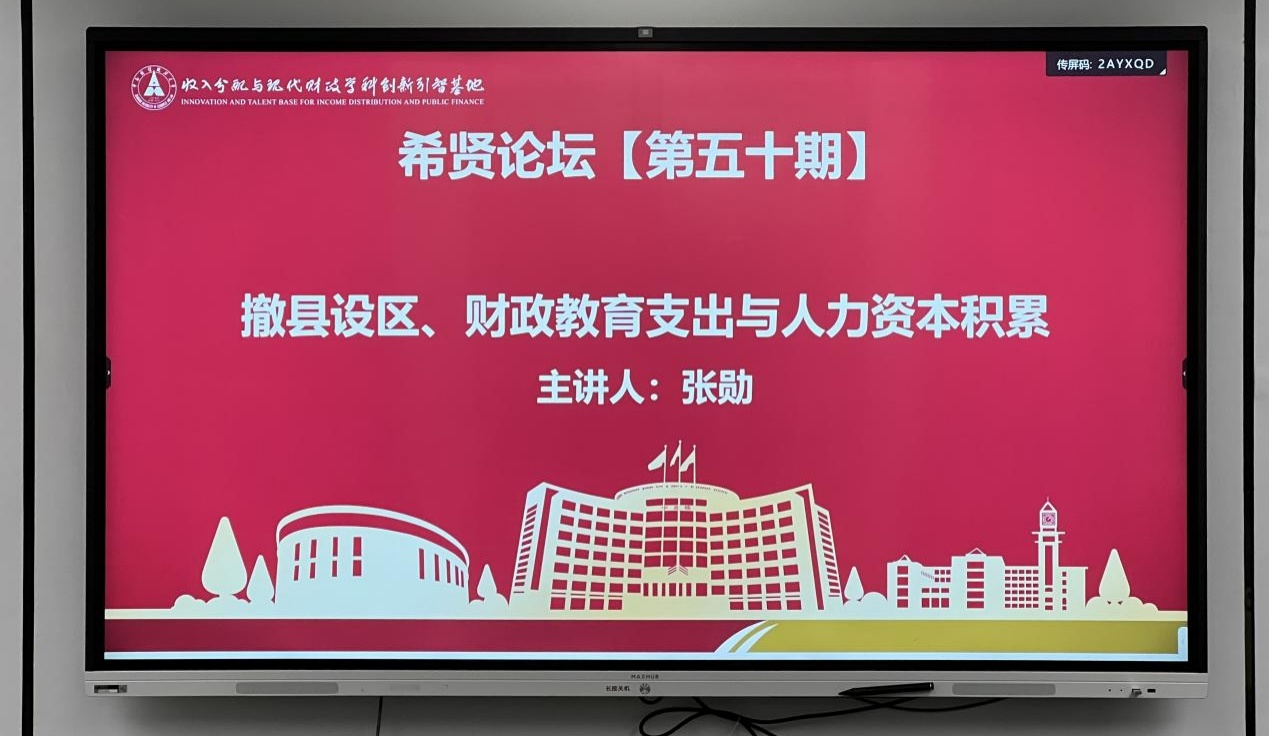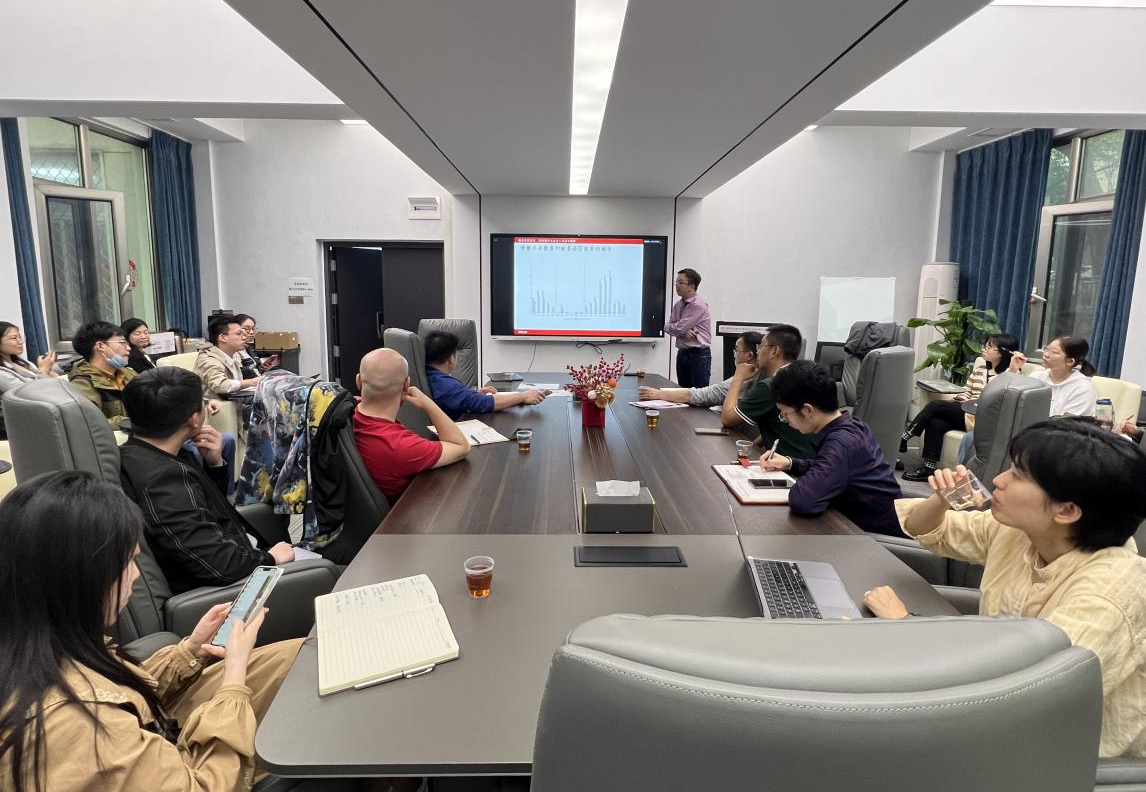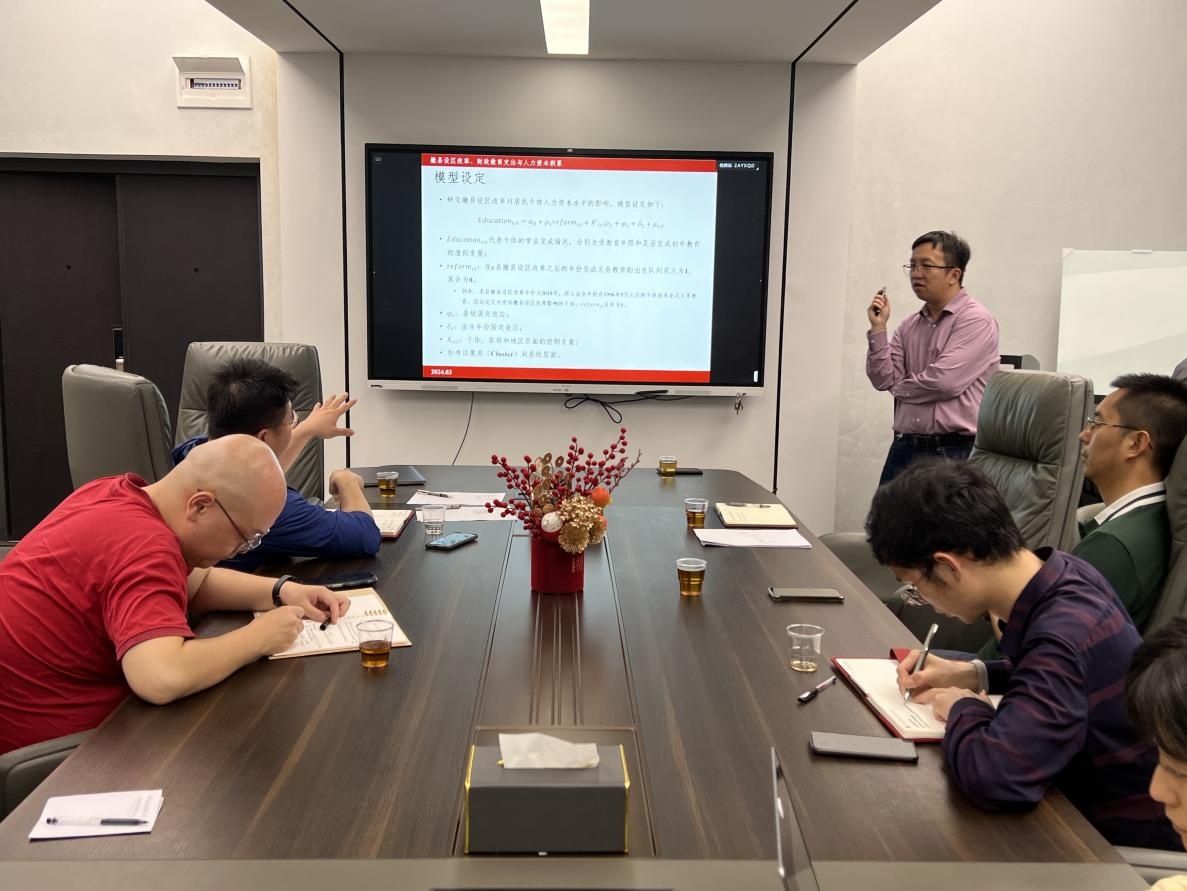The 50th Xi Xian Forum, co-hosted by the Institute of Income Distribution and Public Finance (IIDPF) and the School of Public Finance and Taxation, was successfully held on April 1, 2024 in Conference Room 119 of Wenqin Building. Professor Zhang Xun from the Department of Finance and Statistics, School of Statistics, Beijing Normal University, as the keynote speaker of the forum, gave a keynote speech entitled "Re-designation of Counties as City Districts, Fiscal Expenditure on Education and Human Capital Accumulation". The academic forum was chaired by Professor Lu Yuanping, the Executive Director of IIDPF, with the participation of Associate Professor Zhao Ying and Associate Professor Zhang Ziyao from the School of Public Finance and Taxation, and over 30 faculty members and students, including researchers Dr Wan Qian, Dr Zou Wei, Dr Li Shanshan, and Assistant Professor Gao Sihan from IIDPF.

The report to the 20th National Congress of the Communist Party of China pointed out the need to prioritize educational development and accelerate the construction of a nation strong in education. The emphasis on prioritizing educational development is a strategic deployment for China's future development. The reform of re-designation of counties as city districts is an important administrative tool for the country to promote urbanization, which to some extent achieves a small-scale re-centralization under the decentralized system. Professor Zhang Xun utilized the county-level education expenditure data from 2008 to 2019 in the China Educational Expenditure Statistics Database to construct a time-varying difference in differences (DID) method. The aim was to examine whether the reform could enhance the level of regional education expenditure, thereby evaluating its impact on the supply of basic public services. Research findings indicate that the re-designation of counties as city districts led to a 7.5% increase in fiscal expenditure on education in the reformed counties, and this effect has long-term sustainability. Further analysis reveals that the reform reduces the motivation for infrastructure investment by the original county-level governments and increases fiscal expenditure on education. At the same time, the re-designation of counties as city districts enables prefecture-level municipal governments to optimize the allocation of financial resources in a wider range, which is conducive to achieving equalization of educational expenditure within the region and between urban and rural areas. The reform contributes to improving the level of education among residents in the area.

Professor Zhang Xun brought a wonderful lecture to the faculty members and students present while also triggering deep contemplation among them. During the discussion session, the faculty members and students spoke up enthusiastically, engaging in active interactive exchanges on topics such as research background, theoretical model and demonstration.

Brief Bio
Zhang Xun is a professor and doctoral supervisor at the Department of Finance and Statistics, School of Statistics, Beijing Normal University, as well as a special senior researcher at the Institute of Digital Finance, Peking University. He currently holds a temporary position as the Deputy Director of the Finance and Economics Department at Beijing Normal University. His main research fields are digital economy and digital finance, as well as regional economy and development economics. He has published more than 70 papers in journals such as Social Sciences in China, Economic Research, Management World, Statistical Research, China Economic Quarterly, Journal of Banking & Finance, Journal of Population Economics, and World Development. He is among the top 1% of ESI highly cited authors in the field of Global Economics and Business. Professor Zhang Xun has directed and undertaken the Key Program of the National Social Science Fund of China, as well as the General Program and Youth Program of the National Natural Science Foundation of China. The Youth Program was rated as "Special Excellent" in performance assessment. He has won multiple academic awards such as the Higher Education Youth Science Award of the Fok Ying Tung Foundation, the Higher Education Outstanding Scientific Research Output Award by the Ministry of Education, the Zhang Peigang Award for Young Scholars in Development Economics, Hong Yinxing Economics Prize (Youth), and Business Development Research Achievement Award by the Ministry of Commerce.
